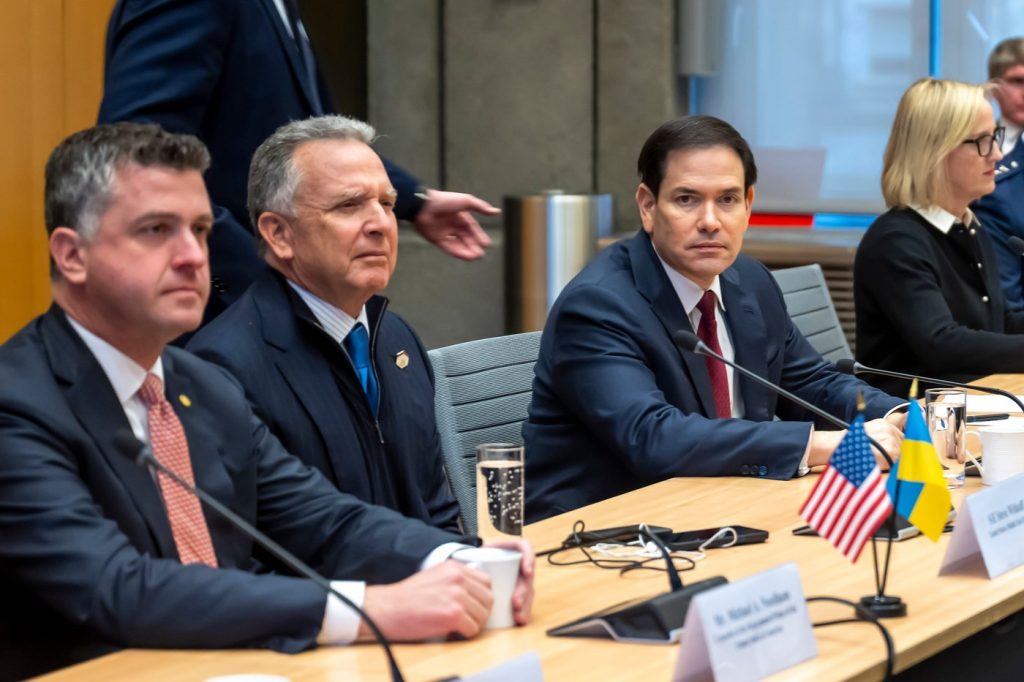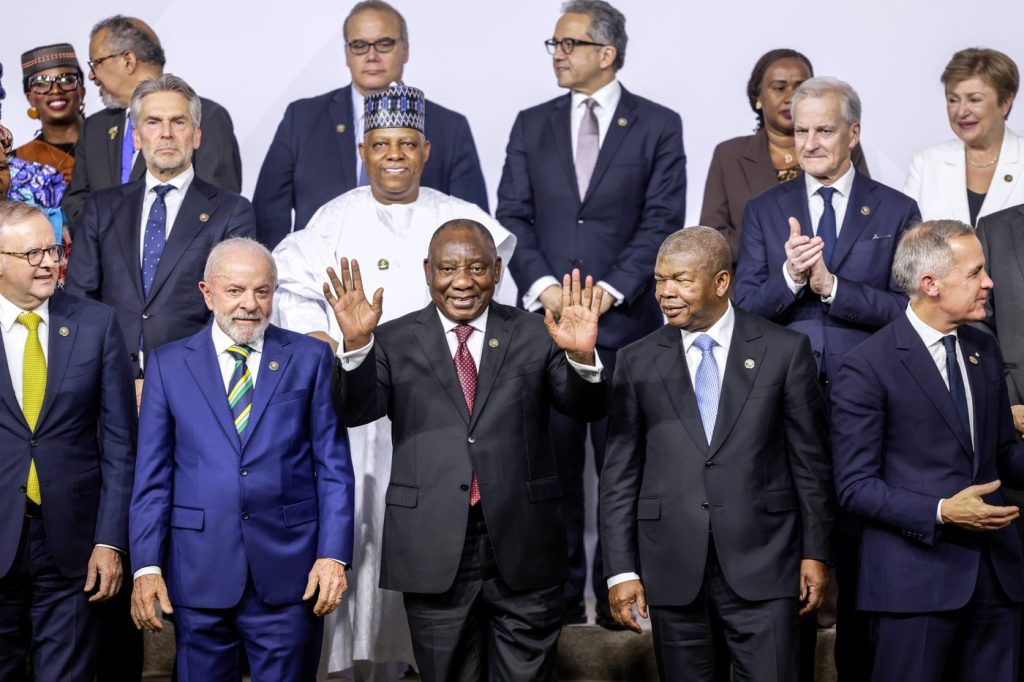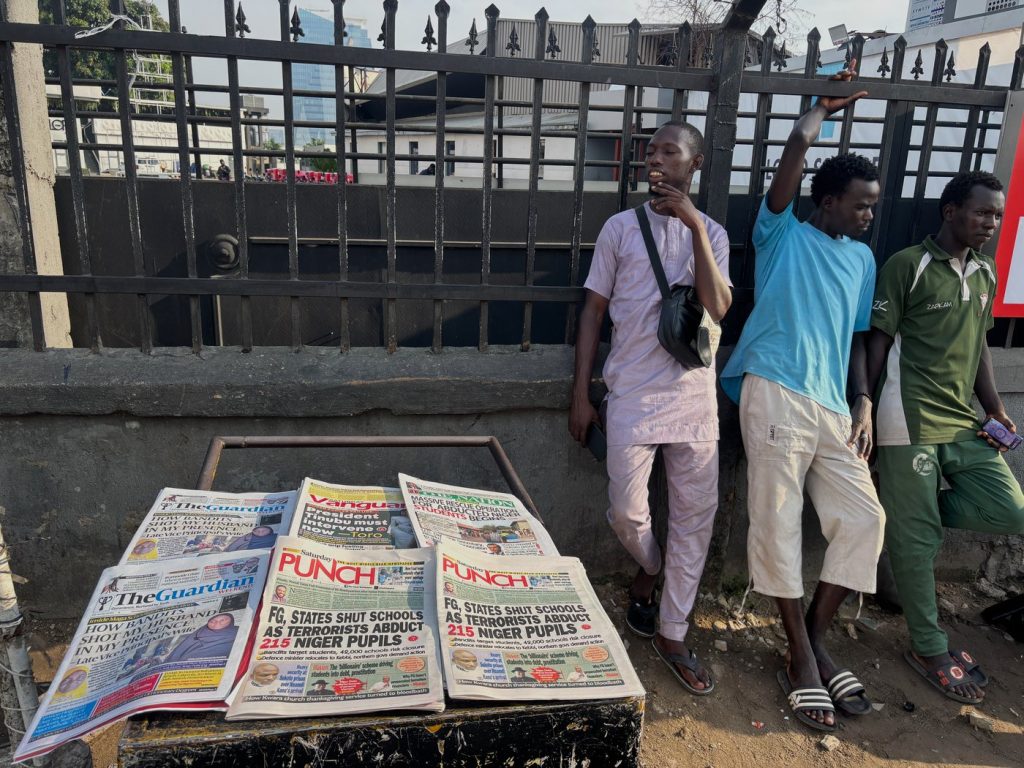GENEVA (AP) — U.S. Secretary of State Marco Rubio and Ukrainian officials reported progress in their ongoing discussions aimed at resolving the Russia-Ukraine war, although they provided minimal details on the talks. The discussions, held in Geneva, centered around an American proposal for peace, which has raised concerns among U.S. European allies about its perceived leniency towards Moscow.
Rubio described the meetings as "very worthwhile" and emphasized the productive nature of the conversations, marking them as the most significant in a "very long time." He expressed optimism about the potential for a resolution but acknowledged that much of the remaining work involves nuanced details that might require input from higher-level officials. "This is a very delicate moment," he stated, highlighting the varied complexities involved in the negotiations.
The U.S. has proposed a 28-point plan aimed at ending the nearly four-year conflict, yet its elements have alarmed Ukrainian leadership and European capitals alike. Ukrainian President Volodymyr Zelenskyy has publicly stated that his country faces a critical choice between protecting its sovereignty and maintaining American support. He has consistently vowed that Ukrainians "will always defend" their homeland.
Parts of the proposed plan include concessions to Russian demands that Zelenskyy has refused to entertain in the past, such as the relinquishment of substantial territorial control. Despite these reservations, the White House later conveyed that the Ukrainian delegation had their major concerns addressed during the discussions, including security guarantees and long-term economic development, indicating a productive framework for negotiations.
While statements from the White House painted a picture of constructive dialogue, a bipartisan group of U.S. senators had raised alarms prior to the meeting, suggesting that the plan resembled more of a "wish list" for Russia than a serious proposal for peace. German Chancellor Friedrich Merz confirmed his communication with Trump, expressing his support for Ukraine’s sovereignty and voicing disagreements about specific elements of the plan.
Rubio characterized the peace proposal as a "living breathing document" that might adapt over time, stating that any ultimate agreement must still be ratified by Moscow, emphasizing "the Russians get a vote here." Andrii Yermak, head of the Ukrainian delegation, echoed Rubio's sentiment, noting, "We have made very good progress and are moving forward to a just and lasting peace."
Contrasting Rubio’s remarks, Trump sharply criticized Ukraine for being unappreciative of U.S. military aid while also refraining from censure against Russia. He set a Thursday deadline for Ukraine's response to his plan but mentioned a possibility of extension if genuine progress is achieved. Trump took to social media, lamenting Ukraine's perceived lack of gratitude while asserting that Europe continues its oil transactions with Russia.
In light of these tensions, Zelenskyy expressed gratitude towards the U.S. and reiterated that any diplomatic resolution should focus on halting Russian aggression to prevent future conflicts. Ahead of the talks with U.S. officials, Yermak met with national security advisors from the U.K., France, and Germany, as allies fortify their commitment to adjusting the proposal to better align with Ukrainian interests.
Alice Rufo, French Minister Delegate at the Defense Ministry, addressed critical issues pertaining to the military and strategic autonomy of Ukraine, asserting that its ability to defend itself must remain intact amid escalating tensions with Russia.
Rubio's statements caused confusion following feedback from U.S. legislators, leading him to clarify in an online post that the senators had misunderstood his comments regarding the origins of the proposal. The ongoing debate about the plan’s authenticity and its implications for European allies continues to circulate through the political sphere.
Meanwhile, Turkish President Recep Tayyip Erdogan announced his intention to discuss a previously established grain deal with Russian President Vladimir Putin, aiming to bolster safe shipping routes for Ukrainian exports through the Black Sea. Erdogan's latest diplomatic efforts follow his recent meeting with Zelenskyy in Ankara, as he seeks to renew discussions on peace initiatives.












